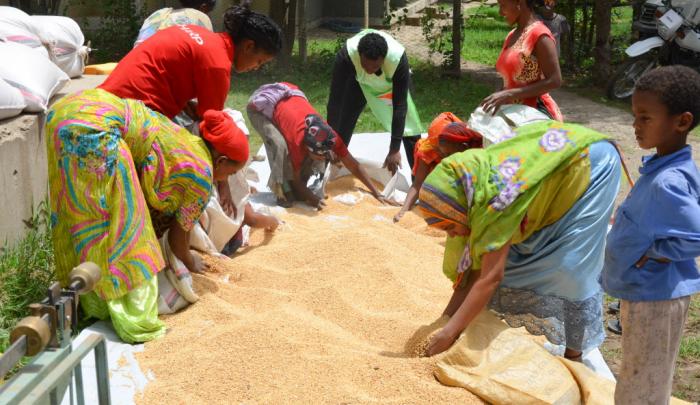An open letter to Congress: Please support the Royce-Engel Food Aid Amendment
Media Contact :
August 16, 2013
Senior Director, Public Engagement
[email protected]
m 202-436-1266
p 202.572.6595
Media Contact :
August 16, 2013
Senior Director, Public Engagement
[email protected]
m 202-436-1266
p 202.572.6595

Since 1954, U.S.-funded food aid has helped feed more than three billion people in more than 150 countries. But the system for providing this aid must evolve to provide the flexibility to meet today’s needs. It is now more important than ever that U.S. food assistance programs maximize their reach and effectiveness and that we make reforms to these crucial programs to meet the needs of millions of families around the world.
With current law still requiring the vast majority of our aid be provided in the form of U.S.-sourced commodities, the U.S. needs greater flexibility to respond quickly and effectively to emergencies and longer-term food insecurity. In emergency situations in particular, the delivery of U.S. commodities can be extremely difficult – due to insecurity, as has been the case in Syria, or due to a host of other obstacles. Purchasing food locally or regionally, or providing cash transfers/food vouchers that work through local market systems, is often the best option for getting food aid to people who need it. Independent research has shown this approach can reach people considerably faster than shipping commodities from the U.S. These are well-tested and proven approaches that come with strong safeguards to ensure assistance is delivered quickly and not diverted from those in need.
The Royce-Engel Amendment would reform U.S. food aid to provide much-need flexibility by:
This amendment does not stop direct food aid shipped from the U.S.; in fact, the majority of authorized food aid would be required to be U.S.-based commodities.
Along with our organizations, a wide array of other stakeholders have affirmed the importance of updating the U.S. food aid program to make it more flexible – including agricultural business leaders, U.S. farmers, and government officials including the Secretaries of Agriculture, State, and Defense, and the USAID Administrator.
When 870 million people around the world go hungry every day, making every food aid dollar count is not only a responsible use of taxpayer money, it is a moral imperative.
Former chiefs of staff to both President George W Bush and President Bill Clinton said it best in a recent Wall Street Journal editorial, “If there was an issue on which big-hearted humanitarians and tightfisted fiscal hawks should find common purpose, food aid reform is it. Millions around the world are counting on us.”
As U.S. humanitarian and advocacy organizations working around the world, including many groups that currently implement food aid programs, we strongly urge you to save lives and money by voting “YES” on the Royce-Engel Amendment (#55).
Sincerely,
|
|
– END –
About World Vision:
World Vision is a Christian humanitarian organization conducting relief, development, and advocacy activities in its work with children, families, and their communities in nearly 100 countries to help them reach their full potential by tackling the causes of poverty and injustice. World Vision serves all people regardless of religion, race, ethnicity, or gender. For more information, please visit www.WorldVision.org/media-center/ or on Twitter @WorldVisionUSA.